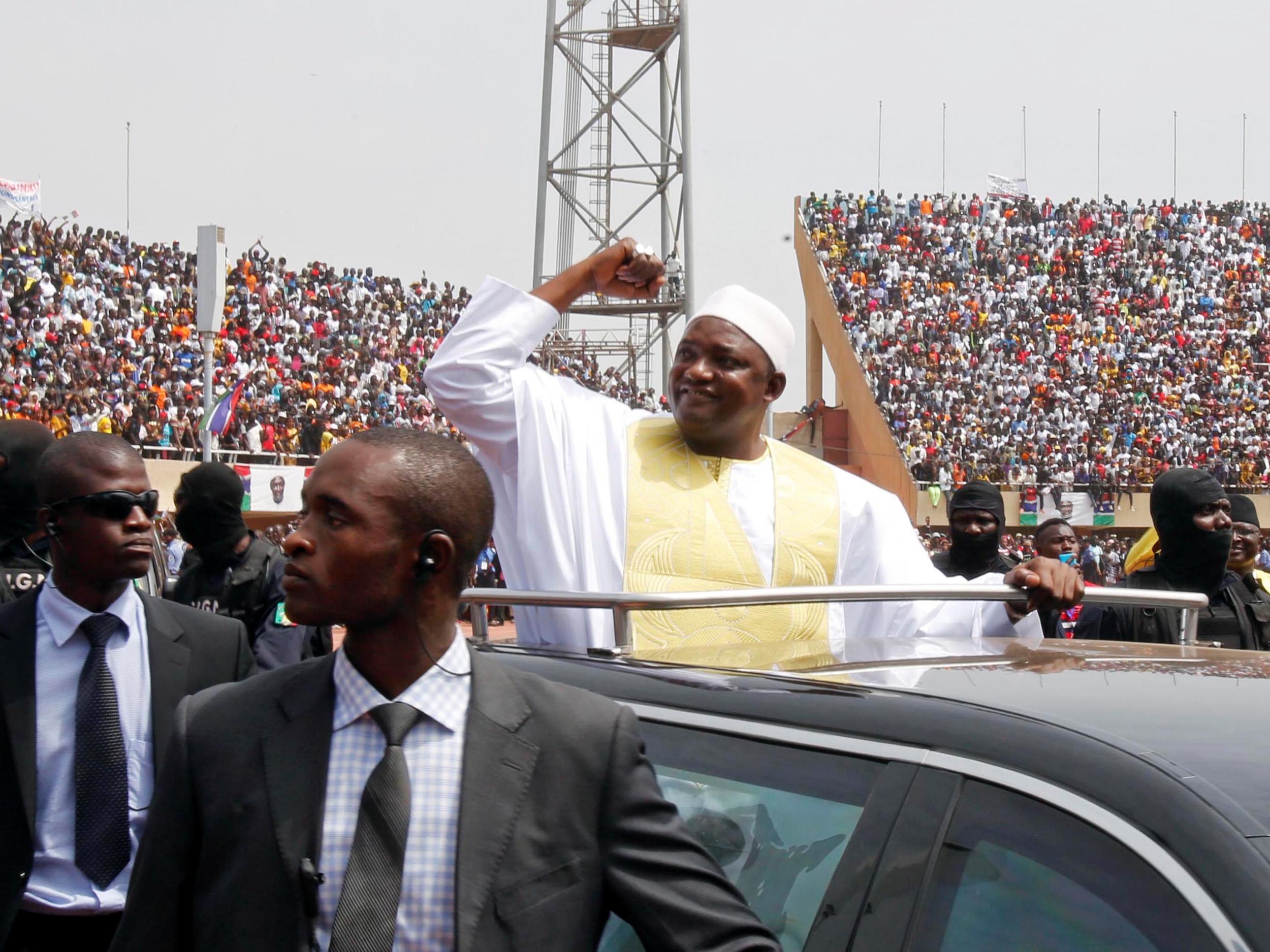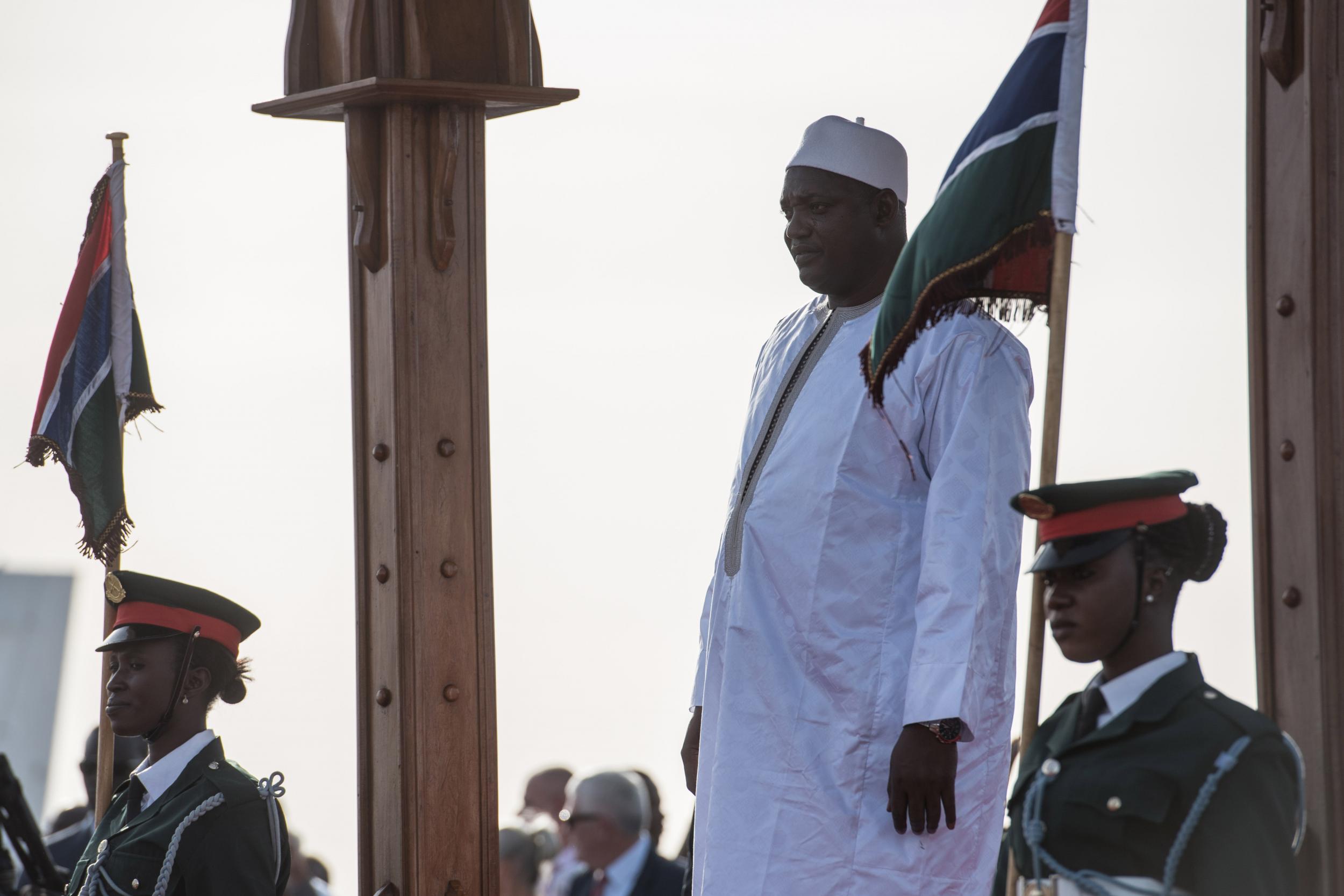Gambia's new President Adama Barrow inaugurated after being forced into exile by Yahya Jammeh
Adama Barrow returns from Senegal and vows to revive country's fortunes

Your support helps us to tell the story
From reproductive rights to climate change to Big Tech, The Independent is on the ground when the story is developing. Whether it's investigating the financials of Elon Musk's pro-Trump PAC or producing our latest documentary, 'The A Word', which shines a light on the American women fighting for reproductive rights, we know how important it is to parse out the facts from the messaging.
At such a critical moment in US history, we need reporters on the ground. Your donation allows us to keep sending journalists to speak to both sides of the story.
The Independent is trusted by Americans across the entire political spectrum. And unlike many other quality news outlets, we choose not to lock Americans out of our reporting and analysis with paywalls. We believe quality journalism should be available to everyone, paid for by those who can afford it.
Your support makes all the difference.Gambia's President Adama Barrow has vowed revive the country's faltering economy with sweeping reforms as he sought to draw a line under the erratic 22-year rule of his predecessor.
Mr Barrow was sworn into office a month ago during a brief exile in Senegal as Yahya Jammeh refused to accept his defeat in a December election. Mr Jammeh fled into exile days later as troops from West African countries prepared to enter the capital and force him to go.
Saturday's inauguration event at the national stadium was ceremonial, timed to coincide with the date that Gambia won independence from colonial master Britain in 1965.
Tens of thousands of Gambians gathered at the stadium to watch military marches and brass bands performing before a giant banner reading #GambiaHasDecided, the slogan of a campaign to persuade Mr Jammeh to accept defeat.
"Few people would have thought that I'd be standing here today," Mr Barrow said, wearing a traditional flowing white robe with gold trim.
"For 22 years, the Gambian people yearned to live in a country where our diverse tribes will be bridged by tolerance and our determination to work together for the common good," he said. "One Gambia, one nation, one people."

Mr Barrow, 51, now faces the task of lifting the tiny nation – which straddles the banks of a West African river – out of grinding poverty, in part a consequence of Mr Jammeh's volatile rule during which thousands of dissenters were jailed and scores of businesses expropriated. "We have inherited an economy in decline," Mr Barrow said.
He pledged to introduce free primary education, which is guaranteed by the constitution but was not implemented during MrJammeh's rule.
Gambia's economy depends on exports of groundnuts from small-scale farming and on the hard currency brought in by thousands of tourists drawn to its sun, white sandy beaches and lively resorts.
Mr Barrow said his government would start work immediately to encourage investment in other sectors such as technology.
He also pledged to re-build institutions that had been hollowed out under Mr Jammeh. During his rule, Gambia's supreme court judges fled the country and the press was muzzled.
Mr Jammeh's cruel and eccentric antics often made headlines, such as when he vowed to rule for "a billion years" and threatened to slit the throats of homosexuals.
Mr Barrow, in contrast, is nicknamed "no drama Adama" because of his calm and quiet demeanour.
A self-made real estate developer who once worked at an Argos department store in London, he is softly spoken and plans to reverse Mr Jammeh's more capricious acts, such as a letter withdrawing from the International Criminal Court.
Reuters
Join our commenting forum
Join thought-provoking conversations, follow other Independent readers and see their replies
Comments